Crustie vs. Irish Mastiff: Breed Differences and Similarities
Hypoallergenic
Are Crusties or Irish Mastiffs hypoallergenic, or neither?
While no dogs are truly 100% hypoallergenic, Crusties are about as close as it gets, making them an ideal pet if you are an allergy sufferer.
Unfortunately, the Irish Mastiff is not hypoallergenic, making it not a good choice for a dog lover who suffers from pet allergies.
Temperament
What are the personalities of Crustie and Irish Mastiff dogs?
Playful
Independent
Happy
Energetic
Alert
Courageous
Intelligent
Affectionate
Loyal
Lively
Tempered
Sweet
Dignified
Protective
Alert
Courageous
Intelligent
Affectionate
Patient
Loyal
Tempered
Sweet
Cheerful
Generous
Thoughtful
Shedding Level
Do Crusties shed more than Irish Mastiffs, or which breed sheds more, Crusties or Irish Mastiffs?
Crusties shed very little hair, making them a great choice for those who dislike excess hair in the house.
Irish Mastiffs are moderate shedders, but regular brushing can reduce shedding and maintain coat health.
Watchdog Ability
Which dog breed makes a better watchdog, the Crustie or Irish Mastiff?
Crusties are decent watchdogs - they'll alert their owner if something seems amiss.
Irish Mastiffs make excellent watchdogs - they're vocal and protective of their territory.
Ancestry
What are the origins of Crustie and Irish Mastiff breeds?
Yorkshire Terrier and Chinese Crested
Mastiff and Irish Wolfhound
Breed recognition
Which kennel clubs recognize/register Crustie and Irish Mastiff?
ACHC = American Canine Hybrid Club
DBR = Designer Breed Registry
DDKC = Designer Dogs Kennel Club
DRA = Dog Registry of America, Inc.
IDCR = International Designer Canine Registry®
ACHC = American Canine Hybrid Club
DDKC = Designer Dogs Kennel Club
DRA = Dog Registry of America, Inc.
IDCR = International Designer Canine Registry®
Date of Birth
When were Crustie and Irish Mastiff breeds first developed?
Unknown
Eye Color Possibilites
What are the eye colors of Crustie and Irish Mastiff dogs?
Brown
Brown
Nose Color Possibilites
What are the natural nose colors of Crustie and Irish Mastiff?
Black
Black
Coat Color Possibilites
What are the natural colors of the coat for Crustie and Irish Mastiff breeds?
Brown
Black
Black
Blue
Brindle
Cream
Gray
Red
Silver
Coat Length
What is the typical coat length for Crustie and Irish Mastiff breeds?
The coat of Crustie and Irish Mastiff dogs ranges in length from short to medium.
Coat Density
What is the density of the coat of Crustie and Irish Mastiff?
Coat Texture
What is the hair texture of Crustie and Irish Mastiff?
Straight
Wiry
Litter Size
What is the usual litter size for Crustie and Irish Mastiff?
A Crustie can have a litter of 4-6 puppies on average. However, it's worth noting that the size of the litters can vary greatly. Factors that can influence litter size include the health of the mother, breeding history, and genetics.
An Irish Mastiff can have a litter of 3-5 puppies on average. However, it's worth noting that the size of the litters can vary greatly. Factors that can influence litter size include the health of the mother, breeding history, and genetics.
Adaptability
Crusties are known for their adaptability and can adjust well to different environments and lifestyle changes.
Irish Mastiffs are highly adaptable and versatile, making them excellent companions for families and individuals of all lifestyles.
Health Issues
Between Crustie and Irish Mastiff, which breed is more prone to health problems?
Crusties typically have low vet costs due to their good health, but it's important to monitor their health and seek vet care when necessary.
The Irish Mastiff breed is generally very healthy, requiring minimal vet visits. Still, it's important to keep an eye on their health and seek veterinary care when needed.
Major Concerns
What are the major health concerns for Crustie and Irish Mastiff breeds?
Legg-Calve-Perthes Disease
Collapsed Trachea
Hip And Elbow Dysplasia
Bloat
Heart Conditions
Minor Concerns
What minor health issues should be kept in mind when owning Crustie and Irish Mastiff?
None
Osteosarcoma
Wobbler's Syndrome
Eye Diseases and Disorders
Occasional Tests
What occasional tests are recommended for Crustie and Irish Mastiff breeds?
X-Rays
Physical Examination
Ultrasound
Eye Examination
Biopsy
X-ray imaging
Electrocardiogram
Energy
How do the energy levels of Crusties and Irish Mastiffs compare?
Crusties are suitable for those with a balanced lifestyle as they have an average energy level.
Irish Mastiffs are a good choice for a low-key lifestyle due to their low energy levels.
Social Needs
Crustie vs Irish Mastiff social needs comparison
Crustie has very high social needs and requires regular mental and physical stimulation, a job or purpose, and companionship.
Irish Mastiff has average social needs and is less independent than other breeds.
Exercise Needed
Crustie vs Irish Mastiff exercise need comparison.
Crusties need only a small amount of physical activity, ideal for busy or elderly people or those with limited space.
Irish Mastiffs require significant physical activity and suit those with an active lifestyle.
Sleeping Need
Which of the two sleeps the most/least: Crustie or Irish Mastiff?
Crusties have moderate energy levels and typical sleep patterns of 12-14 hours per day.
Irish Mastiffs are known for their relaxed and calm nature and enjoy long periods of sleep.
Tendency to Bark
Do Crusties or Irish Mastiffs bark more/less frequently?
Crusties bark moderately when necessary and may also bark due to certain triggers like fear, alarm, boredom, greeting, separation anxiety and compulsive barking.
Irish Mastiff dogs are generally less vocal than other breeds and only bark when necessary, such as to alert their owner or communicate.
Mouthiness
Mouthiness Comparison: Crustie vs Irish Mastiff?
Roaming urge
Crustie vs Labrador: Running away tendency?
Prey Drive
Crustie or Irish Mastiff - which breed has a higher level of prey drive?
Activity Level
Which breed has higher energy, Crusties or Irish Mastiffs?
Crusties are high-energy dogs. They need mental as well as physical exercise. These dogs require a lot of your involvement and without it they can, and will, become problematic dogs.
Irish Mastiffs are medium-energy dogs and typically enjoy socializing and playing casual or even sustained games of chase with other dogs. They may also have occasional periods of barking or racing around the house.
Tolerance of being left alone
Walks per Week
How many miles should Crustie or Irish Mastiff walk each week?
Crustie and Irish Mastiff generally need a minimum of 8 miles of walking per week, but it can be increased as long as they are comfortable with it.
Activity per Day
Do Crusties or Irish Mastiffs require more exercise?
Both Crustie and Irish Mastiff typically require a minimum of 60 minutes of exercise each day. The exercise can be spread throughout the day and may involve high-energy activities like walking, running, and playing.
Grooming
Which breed is easier to maintain in terms of grooming, Crusties or Irish Mastiffs?
Crusties require significant grooming, including regular trims and professional grooming assistance to maintain their coat. They may also require frequent bathing to keep their coat and skin healthy.
The Irish Mastiff requires an average amount of grooming compared to other breeds.
Brushing Frequency
What is the recommended brushing frequency for Crustie and Irish Mastiff dogs?
Ideally, both Crustie and Irish Mastiff should be brushed at least 2 or 3 times a week (preferably daily) to improve shedding.
Brushing Tools
What brushing tools are used for Crusties and Irish Mastiffs?
Pin Brush
Comb
Scissors
Nail Clipper
Slicker Brush
Comb
Deshedder
Nail Clipper
Cups
How much food should be given to Crustie or Irish Mastiff in cups?
For an average 7-13 pound (3 - 6 kg) Crustie feed 1 cups daily. But, keep in mind, the amount you feed is going to be dependent on the quality of the food you are feeding.
For an average 120-180 pound (54 - 82 kg) Irish Mastiff feed 4 cups daily. But, keep in mind, the amount you feed is going to be dependent on the quality of the food you are feeding.
Daily Cost
Which breed has a higher daily cost, Crustie or Irish Mastiff?
The average cost of a Crustie is somewhere $1.10 - $1.40 per day.
The average cost of an Irish Mastiff is somewhere $3.90 - $4.20 per day.
Monthly Cost
Which breed has a higher monthly cost, Crustie or Irish Mastiff?
The average per month expenses of a Crustie is between $28 - $42. This makes an average of $336 - $504 per year. It will be on the higher side when the dog is still small because it will need more frequent visits to the vet, shots.
The average per month expenses of an Irish Mastiff is between $112 - $126. This makes an average of $1344 - $1512 per year. It will be on the higher side when the dog is still small because it will need more frequent visits to the vet, shots.
Intelligence
Comparing Intelligence: Crusties vs Irish Mastiffs
Crusties are average in obedience intelligence but have a high IQ and may cause trouble if left unsupervised.
Irish Mastiff has below average obedience intelligence, but they excel in understanding human emotions.
Sensitivity Level
How do Crustie and Irish Mastiff compare in sensitivity?
This breed is sensitive to its environment and best suited for patient and understanding families with a consistent routine.
Irish Mastiffs have average emotions and adapt well to different situations.
Affection Dependance
Which is the more affectionate dog breed: Crustie vs Irish Mastiff?
Apartment Friendly
Which breed is more apartment-friendly: Crustie or Irish Mastiff?
Crusties make excellent apartment dogs, being fairly active indoors and not requiring a yard.
Irish Mastiffs are good apartment dogs as long as they get enough exercise and stimulation outside of the apartment.
Child Friendly
Do Crusties or Irish Mastiffs have a friendlier temperament towards children?
Crusties have an average level of friendliness towards children.
Irish Mastiffs make excellent family pets for kids due to their gentle, protective nature and calm temperament.
Senior-friendly
Which dog is more suitable as a pet for the elderly - Crustie or Irish Mastiff?
Cat Friendly
Do Crustie or Irish Mastiff breeds have a better compatibility with cats?
Crusties and Irish Mastiffs are one of the best dogs for cats. They accept cats readily as part of the family. However, this dog breed should be trained to not chase after the kitty early on
Dog Friendly
Which breed is more sociable with other dogs: Crustie or Irish Mastiff?
Crusties are average in their friendliness towards other dogs, and socialization can help.
Irish Mastiffs are friendly and active companions, and can be good family pets, though their friendliness towards other dogs may vary.
Pet friendly
How do Crustie or Irish Mastiff dogs interact with other pets?
Stranger Friendly
Which breed is more friendly with strangers: Crustie or Irish Mastiff?
Crusties are friendly but may bark at strangers, and training is easy due to their intelligence.
Irish Mastiffs are averagely friendly around strangers but benefit from early socialisation.
Playfulness
Which breed is more playful between Crustie and Irish Mastiff?
Crustie and Irish Mastiff have an average level of playfulness. Like other dogs, they enjoy playing, but they are not the most playful dog breed.
Trainability
How do the trainability levels of Crusties and Irish Mastiffs compare?
Crusties are popular for their ease of training and quick learning ability.
Irish Mastiffs are usually easy to train but require consistency to fully obey commands.
Compare Crustie with other breeds
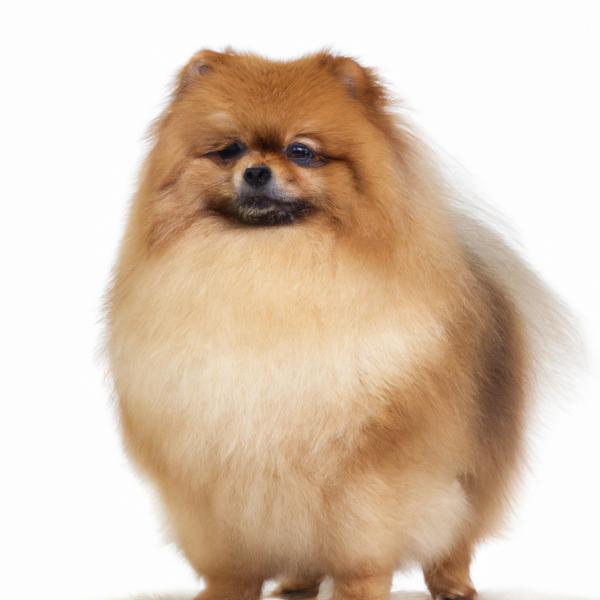
Pom-Silk
Crustie vs Pom-Silk

Bostie
Crustie vs Bostie

Siberian Pinscher
Crustie vs Siberian Pinscher

Redbone Coonhound
Crustie vs Redbone Coonhound
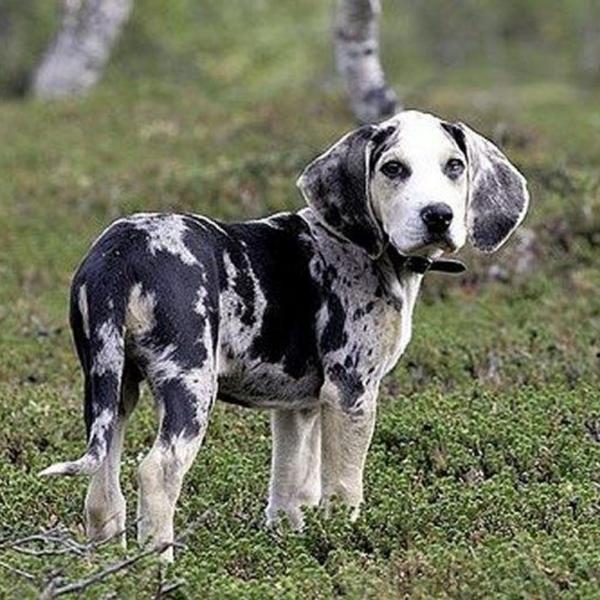
Dunker
Crustie vs Dunker

Shinese
Crustie vs Shinese

King Charles Yorkie
Crustie vs King Charles Yorkie

Blue-Tzu Heeler
Crustie vs Blue-Tzu Heeler
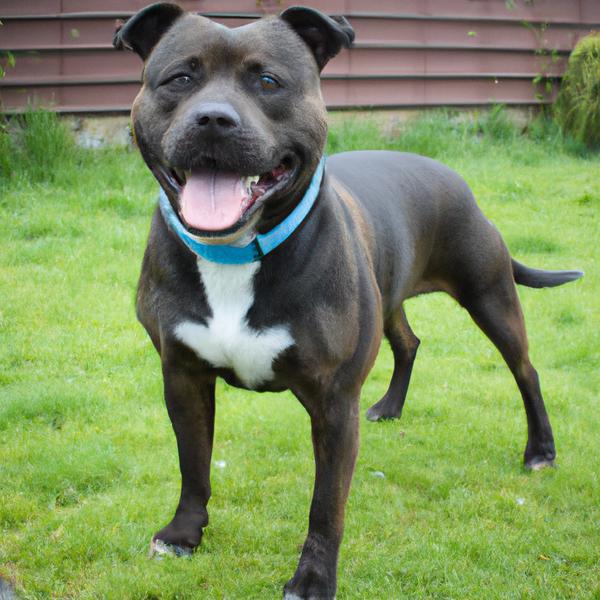
Staffy Bull Pit
Crustie vs Staffy Bull Pit
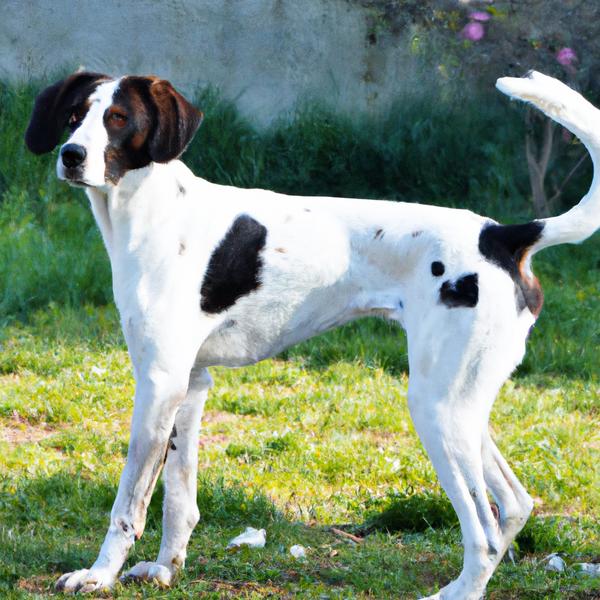
Dualanese
Crustie vs Dualanese
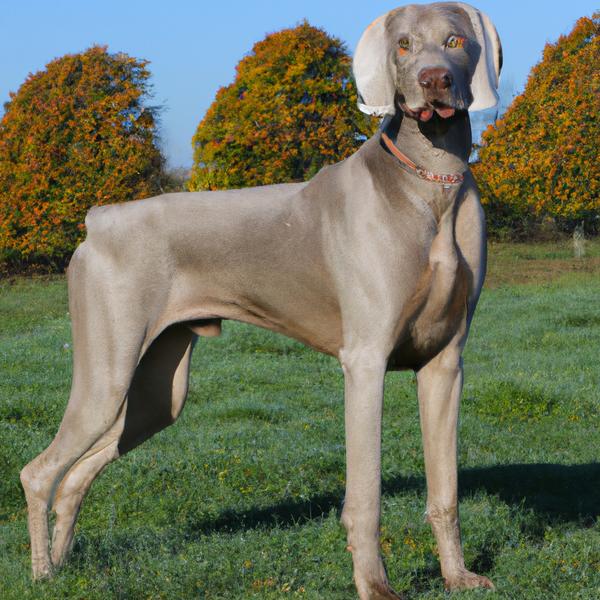
Weimapeake
Crustie vs Weimapeake
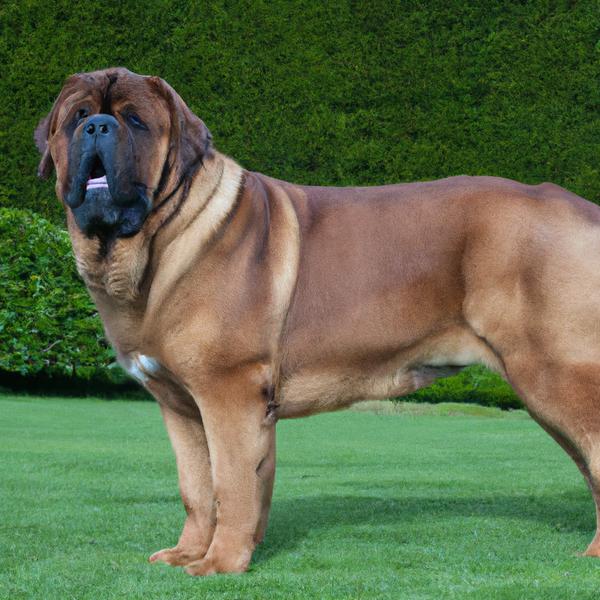
Irish Mastiff
Crustie vs Irish Mastiff
